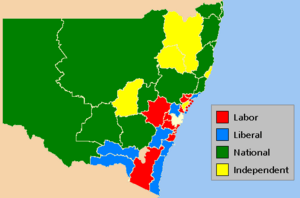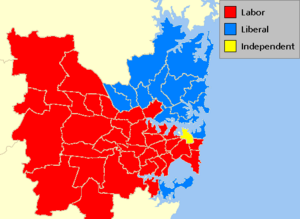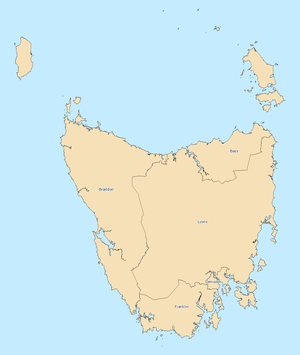State Electoral District facts for kids
State Electoral District means an electorate in the Lower House or Legislative Assembly of Australian states and territories. Most state electoral districts (except Australian Capital Territory and Tasmania, which have multi-member electorates using a proportional voting method) send a single member to a state or territory's parliament using the preferential method of voting. The size of a state electoral district depends on the Electoral Acts in the state and vary in size between them. At present, there are 407 state electoral districts in Australia.
State electoral districts do not apply to the Upper House, or Legislative Council, in the states which have one (New South Wales, South Australia, Tasmania, Victoria and Western Australia). In New South Wales and South Australia, MLCs represent the entire state, in Tasmania they represent single-member districts, and in Victoria and Western Australia they represent a region formed by grouping electoral districts together.
Contents
By State/Territory
Australian Capital Territory
There are three electorates for the Legislative Assembly, two with five members each, and one with seven members, making up seventeen members in total.
New South Wales
There are currently 93 electoral districts in New South Wales.
Northern Territory
There are 25 single-member electoral divisions in the Northern Territory, and 13 former divisions.
Queensland
There are 89 electoral districts in Queensland, for the Legislative Assembly of Queensland.
South Australia
There are 47 single-member electoral districts in South Australia, for the South Australian House of Assembly.
Tasmania
There are 5 electoral divisions in Tasmania.
Victoria
There are 88 electoral districts in Victoria, for the Victorian Legislative Assembly.
Western Australia
There are 59 single-member electoral districts in Western Australia for the Western Australian Legislative Assembly. 42 are in the Perth metropolitan area and 17 are in the rest of the state.
Images for kids





